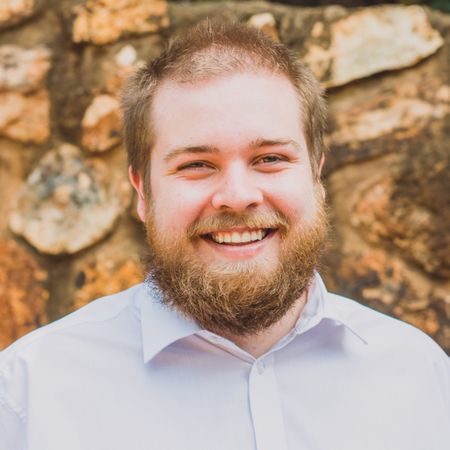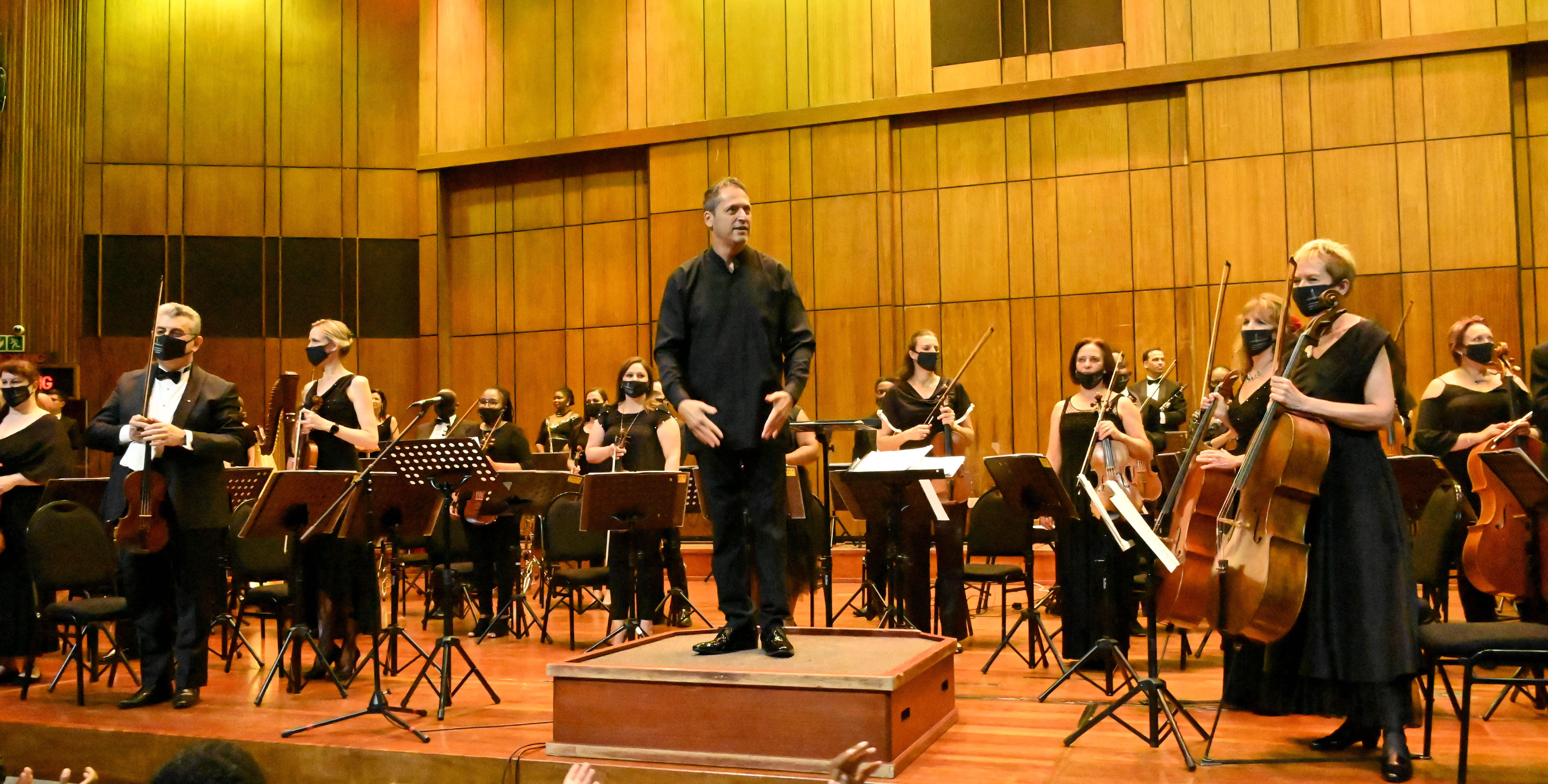Starting the season with a whimper and a bang
The Johannesburg Philharmonic Orchestra (JPO)’s latest season started with both a whimper and a bang. Upon the audience’s arrival on opening night, we heard that Daniel Boico, who was scheduled to conduct the performance, had suddenly taken ill and would not appear. Instead, Bernhard Gueller, a JPO stalwart, picked up the final rehearsal where Maestro Boico had left off, with his steady and experienced hand.
The programme included two popular favourites: Sibelius’s Violin Concerto, and Dvořák’s Ninth Symphony (“From the New World”). Both are stunning compositions, beautiful enough even for a regular like this writer (who has heard each more times than he can count) to sit back and enjoy without a single complaint.
The concerto featured the soloist Yi-Jia Susanne Hou, a Chinese-Canadian violinist who has appeared in a number of concerts in South Africa over the past 10 years. Her sound was strong and clear, and she and the orchestra played the late-romanticism of the piece to the hilt. She tore into each phrase with a sharp attack and mighty arm swing, as if Achilles himself were bowing for her. She shook her head, she doubled over, she bent over backwards, she swung around throughout her performance. We in the audience could not help but be impressed and show it in our ovation, but she must have been thoroughly spent, as no encore was forthcoming.
The New World Symphony’s many enticing melodies mean that it can be played in any way by any orchestra (and the JPO performed it quite competently), and the piece will always be enjoyable. Dvořák was inspired by African-American spirituals, indigenous American traditional music, and the sheer experience of wide-open American spaces when he composed the symphony, and these expansive effects on his musical imagination are clear whenever I hear the piece. He covers a wider range of emotional expression and employs a deeper palette of orchestral colours than in any of his previous symphonies, and it comes across as pure pleasure for a listening audience.
An all-20th-century programme
The following concert featured the happy annual tradition of combining the JPO’s forces with those of the KZN Philharmonic, an excellent sister-ensemble from Durban. The event was made even more gratifying by presenting an all-20th-century programme – an uncommon pleasure at JPO concerts.
The playing of the pieces revealed some interesting sonic connections as well; Prokofiev’s second Romeo and Juliet suite opened the concert, followed by Gershwin’s Rhapsody in Blue, and Rachmaninov’s Symphonic Dances closed it.
The Rachmaninov bore, or so I thought, the clear influence of Prokofiev, with its restless rhythms and building motifs that made up a well-crafted, playfully ironic masterpiece. Gershwin’s jazzy chestnut relied heavily on the blueprints of Rachmaninov’s piano concertos. And both Rachmaninov and Gershwin learnt of new colourful orchestration techniques from the French composer Ravel. As music history extends, it displays further and deeper connections between its parts.
The conductor of the concert was a new guest, Rebecca Tong, a Jakartan, who arrived dressed in a severe all-black suit, and whose podium movements were small, sharp and, above all, fast. She launched into the “Montagues and Capulets” dance at breakneck speed, which she kept up for most of the first half of the concert, and with which the orchestra apparently struggled to keep up. Every beat was meticulously indicated, but players were behind it a number of times.
/file/dailymaverick/wp-content/uploads/2022/09/ED_338374.jpeg)
A distinguishing part of the concertgoing experience is being in one room with so many hundreds of strangers, hearing the same classic works of art being expressed by warm bodies in real time. That part was strongly highlighted in the second concert, which appeared completely sold out, as I could not see a single empty seat from my vantage point over the whole hall.
A full house brings a certain heightened energy to a performance, and it also usually brings some added noise. One concertgoer saw fit to punctuate the immediate silence after the final chord of Romeo and Juliet with a very loud single cough, which made it seem like we were applauding her vehement lungs as much as we were the orchestra.
Rhapsody in Blue brought out the formidable South African pianist Nina Schumann. She matched Tong’s fast tempi with gusto, and took her opportunities in piano solos to bring some calmer, slower moments into the music. Schumann is a probing, intellectual performer, but her Gershwin seemed marked above all by unadulterated fun. She hopped, skipped and jumped around the keyboard, and hinted at swung rhythms without fully indulging them. (I admit that I missed some of her cadenza in the middle, as this is when the concertgoer next to me, a complete stranger, fell asleep with her head on my shoulder. I was too paralysed by my state of social panic to pay much attention to the musicians at this point.)
All the evening’s immodesties culminated with Rachmaninov – the composer best suited to fervid musicians and hungry audiences.
The Symphonic Dances is one of the great Russian’s finest works, completed soon before his death, and the players executed it brilliantly. The sound that resonated up to my seat in the balcony was warm, burly and confident. The dance element of the title came across with delight. In the final movement, Rachmaninov plays on the traditional “Dies Irae” chant, which he quoted obsessively throughout his life. Tong and the JPO highlighted each instance of it, until it was resounding powerfully across the piece.
A colourful travelogue
The final concert of the season brought a mercifully more sufferable group of listening companions, the welcome return of Daniel Boico, and an intriguingly unusual concert programme. It sounded like a colourful travelogue: Spain (via Russian artistry), Japan (via Armenian curiosity), France, Russia and Hungary filled the roster. And the performance proved even more delectable than anticipated.
Starting with Rimsky-Korsakov’s Capriccio Espagnol, an exuberant suite based on Spanish folk melodies, Boico and the JPO seemed to set the very air in the hall alight with dance. Boico usually conducts with flair and verve, and this was a glittering instance of those gifts. His fluttering hand movements and the violins’ delightful plucking/bowing alternations were just as much fun to watch as the music was invigorating to listen to.
This was followed by the JPO’s first-ever concerto for marimba: a mid-20th-century work called Fantasy on Japanese Woodprints, by the Armenian composer Alan Hovhaness. In the Sixties, Hovhaness travelled to Japan where he studied a number of traditional instruments and compositional techniques, which were brought to bear on this Fantasy. After so much conventional symphonic fare, the Japanese Woodprints concerto brought a refreshing gale of otherworldliness into the Linder Auditorium.
The marimba soloist hummed hauntingly up and down mystical modes, and the woodwinds slid dissonantly while the strings all buzzed and fluttered on a static, inscrutable harmony, like ethereal insects suspended in the air.
Later on, thundering timpani and booming trombones broke through the spell with insistent martial rhythms, and the piece ended with the entire orchestra repeating the main melody in a building crescendo while the marimba solo hammered feverishly across its registers, and thrashed out a sudden final chord.
The soloist on the evening was the pre-eminent South African percussionist Magdalena de Vries, and she played with both brilliant panache and touching sensitivity. In some moments, she played her marimba so lightly that we could hear no percussive attack, only the soft echo of the note rising wistfully from the stage.
At other times, using harder mallets, she looked more like a splenetic blacksmith or hyper-eager rock drummer as she ran up and down the keys. Her tenderness won out in the end, in the season’s first (and only) encore – a meditative chorale by JS Bach, which her wooden bars sang out plaintively as if it were a small church choir.
After an interval, Boico gave a few more twists in the musical kaleidoscope, as he led a warm and gentle rendition of Debussy’s Petite Suite, and then a rip-roaring version of Mussorgsky’s Night on Bald Mountain. The programme was brought to a close with Liszt’s evergreen symphonic poem Les préludes, which served as a warming reminder of why we choose to attend live concerts at all.
The trombones rendered the fortifying heroic theme so muscularly, and the French horns delivered so winsome a responding love theme, that I found myself grinning throughout the performance like a besotted fool, so won over by the music’s romance that I forgot where I was.
At loud moments, my friend and I could literally feel the sonorous soundwaves vibrating in our legs and feet, and when the music dropped to a whisper, it felt like the fullness of my own beating heart would drown it out.
The somatic proximity to artists, the physical exertions of their bodies on pieces of wood and metal, and the sheer element of risk that inhere live musical performances, make up indelible experiences that can never leave an appreciative listener. DM/ML
Jared Beukes is a classical music enthusiast, film blogger and financial services operative based in Johannesburg. The JPO’s next season starts on 20 October 2022. Information will be made available on their website.
Visit Daily Maverick's home page for more news, analysis and investigations





 Conductor Daniel Boico at the Philharmonic Orchestra's Valentine Gala Concert on February 12, 2022 in Johannesburg, South Africa. Image: Gallo Images / Oupa Bopape
Conductor Daniel Boico at the Philharmonic Orchestra's Valentine Gala Concert on February 12, 2022 in Johannesburg, South Africa. Image: Gallo Images / Oupa Bopape